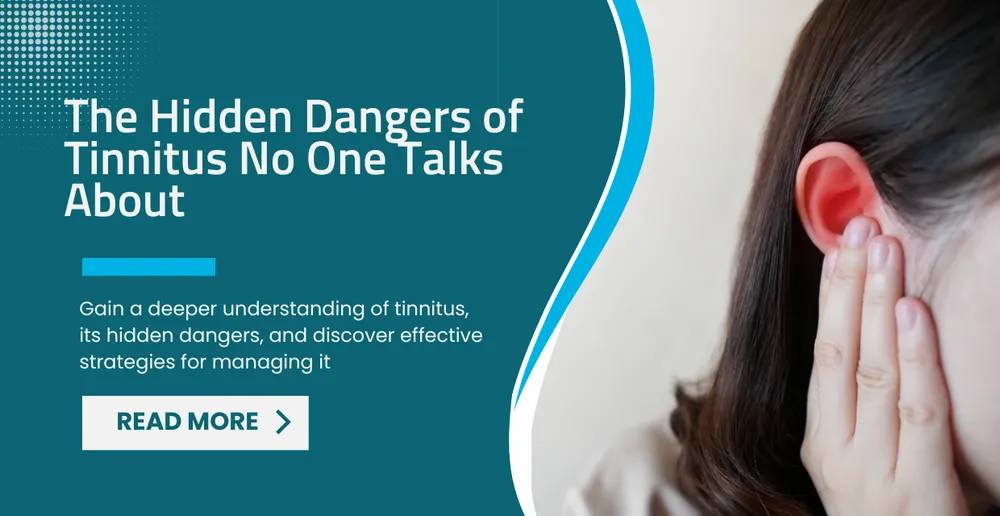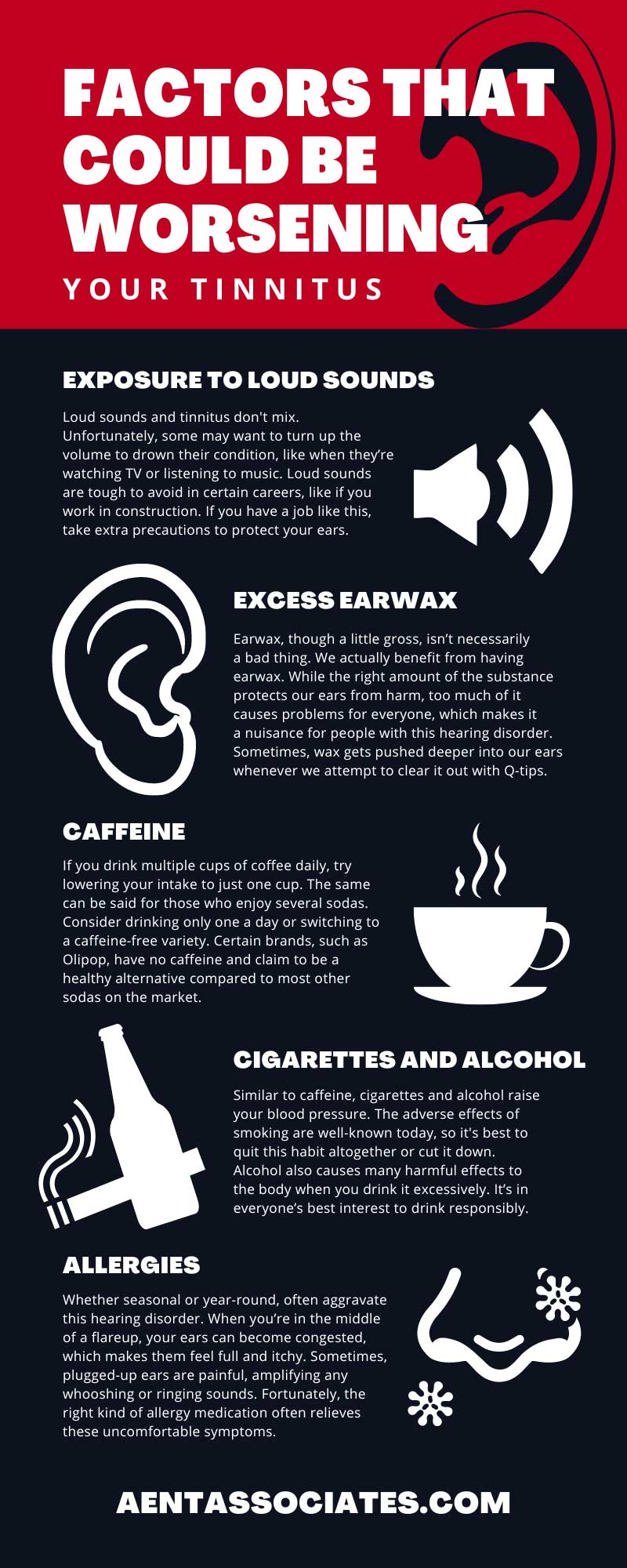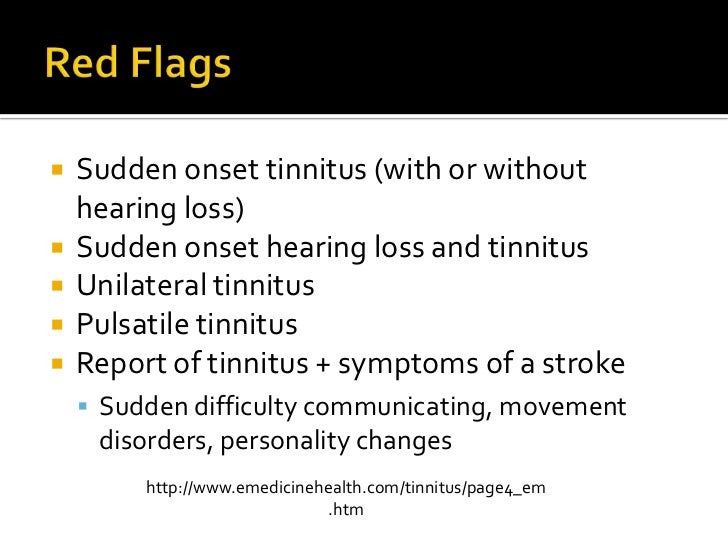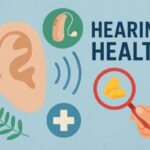Key Takeaways
- Tinnitus itself is rarely dangerous, but in some cases may signal underlying serious medical conditions that require attention.
- Pulsatile tinnitus (rhythmic sounds that match your heartbeat) warrants immediate medical evaluation as it could indicate vascular problems.
- Chronic tinnitus can impact mental health, sleep quality, and overall well-being if left unmanaged.
- One-sided or sudden-onset tinnitus, especially when accompanied by vertigo or hearing loss, should never be ignored.
- Hearing specialists can differentiate between benign tinnitus and symptoms that require further investigation for potentially dangerous causes.
That persistent ringing in your ears might be annoying, but is it actually harmful to your health? For the 50 million Americans experiencing tinnitus, understanding the potential risks is crucial for peace of mind and proper care.
Tinnitus—characterized by hearing sounds with no external source—ranges from barely noticeable to severely disruptive. While the condition itself is typically not life-threatening, it sometimes serves as an important warning signal that shouldn’t be dismissed. The Healthy Hearing Foundation reports that proper evaluation of tinnitus symptoms can sometimes uncover serious underlying conditions that require medical intervention.
Understanding when tinnitus might indicate danger and when it’s merely a nuisance can help you make informed decisions about seeking medical care. Let’s explore what medical experts want you to know about the safety and potential risks associated with this common condition.
Is Tinnitus Itself Dangerous to Your Health?
“The Hidden Dangers of Tinnitus No One …” from lchafrica.com and used with no modifications.
The short answer from otolaryngologists is that tinnitus itself is rarely dangerous. Dr. Michael Stewart, professor of otolaryngology at Weill Cornell Medicine, explains that “tinnitus is usually a symptom, not a disease in itself.” While the phantom sounds can be distressing, the actual neural processes creating those perceptions aren’t typically harmful to your physical health.
However, living with untreated tinnitus can lead to secondary health impacts that affect quality of life and well-being. These cascading effects sometimes create health challenges that extend beyond the auditory system.
Research from Johns Hopkins Medicine suggests that persistent tinnitus requires evaluation primarily to rule out serious underlying causes and to address potential complications that may develop over time. The condition deserves attention even when it’s not directly dangerous.
Physical Health Impacts of Chronic Tinnitus
- Elevated stress hormones like cortisol, which can affect blood pressure and immune function
- Increased muscle tension, particularly in the neck, jaw, and shoulders
- Heightened sensitivity to sounds (hyperacusis) that can worsen over time
- Potential hearing deterioration if tinnitus is related to ongoing noise exposure
- Vestibular symptoms including dizziness or balance issues in some cases
Physical effects of chronic tinnitus often develop gradually, creating a cumulative impact on health. Dr. Jennifer Derebery, a neurotologist at House Clinic in Los Angeles, notes that “the body’s stress response to persistent tinnitus can trigger inflammation and tension that affects multiple body systems.” These physical responses can lead to headaches, digestive issues, and even cardiovascular strain in severe cases.
The relationship between tinnitus and physical health operates bidirectionally—physical tension can worsen tinnitus perception, while tinnitus can increase physical tension. Breaking this cycle through proper management becomes crucial for long-term health maintenance.
Mental Health Consequences of Untreated Tinnitus
Perhaps the most significant health impact of tinnitus affects mental well-being. The American Tinnitus Association reports that severe tinnitus correlates with higher rates of anxiety, depression, and social isolation. These mental health impacts represent the most common “dangerous” aspect of unmanaged tinnitus. The constant internal sound can become all-consuming, interfering with concentration, emotional regulation, and social interactions.
Research published in JAMA Otolaryngology shows that individuals with severe tinnitus have nearly twice the risk of developing depression compared to the general population. This mental health burden can lead to decreased quality of life, impaired work performance, and strained relationships. Early intervention for tinnitus management often focuses on preventing or addressing these psychological impacts before they become entrenched. For more insights on effective management, explore tinnitus treatment options.
Sleep Disruption and Related Health Risks
Tinnitus often becomes most noticeable in quiet environments, making bedtime particularly challenging. According to the Sleep Foundation, up to 70% of people with tinnitus report sleep disturbances. These sleep issues then cascade into a range of potential health problems, from impaired immune function to cognitive difficulties and increased accident risk.
Chronic insomnia linked to tinnitus has been associated with heightened risk for cardiovascular problems, metabolic disorders, and impaired daytime functioning. The relationship becomes cyclical, as sleep deprivation typically worsens tinnitus perception, creating a challenging feedback loop. Breaking this cycle through sleep-focused interventions represents a crucial aspect of tinnitus management.
When Tinnitus Signals Serious Medical Problems
“Your Tinnitus” from www.aentassociates.com and used with no modifications.
While most tinnitus cases are benign, certain patterns or accompanying symptoms warrant immediate medical attention. Tinnitus can occasionally serve as an early warning sign of underlying conditions that could potentially be dangerous if left untreated. The key is recognizing when your tinnitus might be signaling something more serious.
Medical experts at the Mayo Clinic emphasize that certain “red flag” symptoms accompanying tinnitus should never be ignored. These warning signs help distinguish between annoying but harmless tinnitus and symptoms that require prompt evaluation. For more insights, you can read about whether tinnitus is dangerous and understand how recognizing these distinctions can literally save lives in rare but critical situations.
Pulsatile Tinnitus: A Potential Warning Sign
Pulsatile tinnitus—characterized by rhythmic sounds that match your heartbeat—requires special attention. Unlike typical tinnitus, which usually produces steady tones, this pulsing sound often indicates blood flow abnormalities. Vascular issues such as carotid artery stenosis, arteriovenous malformations, or intracranial hypertension may be responsible. These conditions, while rare, can present serious health risks if left undiagnosed.
Neurosurgeon Dr. Robert Friedlander from UPMC explains that “pulsatile tinnitus differs fundamentally from regular tinnitus because it has a mechanical cause—often involving blood vessels—rather than a neurological one.” This distinction makes prompt evaluation essential. Studies show that approximately 10% of pulsatile tinnitus cases reveal underlying vascular abnormalities that require treatment. Never dismiss rhythmic ear sounds that sync with your pulse.
7 Dangerous Conditions That Can Cause Tinnitus
- Acoustic neuroma – A benign tumor on the vestibulocochlear nerve that can cause hearing loss and balance problems if allowed to grow
- Ménière’s disease – An inner ear disorder that can lead to severe vertigo, fluctuating hearing loss, and potentially dangerous falls
- Hypertension – Chronic high blood pressure that increases risk of stroke and heart disease
- Vascular stenosis – Narrowing of blood vessels that can reduce blood flow to the brain
- Intracranial hypertension – Increased pressure within the skull that can damage vision and brain function
- Temporal bone abnormalities – Structural problems that may compromise ear function and surrounding structures
- Autoimmune inner ear disease – Inflammatory condition that can progress to permanent hearing loss without treatment
Sudden-Onset Tinnitus Requiring Immediate Attention
Tinnitus that appears suddenly—especially when accompanied by significant hearing loss—constitutes a medical emergency. This presentation often indicates sudden sensorineural hearing loss (SSHL), a condition requiring immediate steroid treatment to prevent permanent damage. The window for effective intervention typically closes within 2-3 weeks, making rapid response crucial for hearing preservation.
Dr. Sarah Mowry, otolaryngologist at Cleveland Clinic, emphasizes that “sudden tinnitus with hearing loss should be treated with the same urgency as chest pain or stroke symptoms—it represents a true emergency where time equals function.” Studies demonstrate that early intervention for SSHL can improve recovery rates by up to 40%, highlighting why immediate medical evaluation matters.
One-Sided Tinnitus: What It Might Mean
Tinnitus affecting only one ear requires careful evaluation, particularly when accompanied by asymmetric hearing loss. This pattern may indicate acoustic neuroma, a benign tumor growing on the hearing and balance nerve. Though slow-growing, these tumors can eventually press on the brainstem if left untreated. Other potential causes include Ménière’s disease or vascular abnormalities that could require intervention.
The American Academy of Otolaryngology-Head and Neck Surgery guidelines specifically highlight unilateral tinnitus as a symptom warranting diagnostic imaging. While most cases won’t reveal serious underlying issues, the potential consequences of missed diagnosis justify thorough investigation. Never dismiss persistent one-sided ear symptoms without professional evaluation.
Red Flags That Require Immediate Medical Attention
“Sudden Onset Pulsatile Tinnitus 2025 …” from www.etablissementdenface.com and used with no modifications.
Medical experts have identified clear warning signs that indicate when tinnitus requires emergency attention. If you experience tinnitus alongside vertigo severe enough to affect balance, sudden hearing loss, or head trauma, seek immediate medical care. These combinations suggest potentially serious underlying conditions that may have long-term consequences if treatment is delayed. For more insights, you can explore tinnitus treatment options to understand what works and what doesn’t.
The urgency increases when tinnitus appears after head injury or with neurological symptoms like facial weakness, difficulty speaking, or coordination problems. Such presentations may indicate traumatic injury to the temporal bone, vascular events, or other neurological emergencies. Remember that prompt diagnosis dramatically improves outcomes for many of these conditions.
Dr. Lawrence Lustig, chair of otolaryngology at Columbia University Medical Center, notes that “while tinnitus alone rarely constitutes an emergency, certain accompanying symptoms transform it into an urgent situation requiring same-day evaluation.” Understanding these distinctions can help patients make appropriate decisions about when to seek immediate care versus scheduling routine follow-up.
Symptoms That Should Never Be Ignored
SEEK IMMEDIATE MEDICAL CARE IF TINNITUS OCCURS WITH:
For those experiencing tinnitus, it’s crucial to be aware of accompanying symptoms that may require urgent attention. If you are seeking relief, consider exploring quick relief tips for tinnitus to manage your condition effectively.
- Sudden hearing loss in one or both ears
- Severe dizziness or vertigo affecting balance
- Following head trauma or barotrauma (pressure injury)
- Facial weakness or asymmetry
- Severe headache unlike any experienced before
- Confusion or altered mental status
- Difficulty speaking or understanding speech
Dr. Hamid Djalilian, director of otology at UC Irvine, warns that “the combination of tinnitus with vertigo and hearing loss—forming what we call the otologic triad—often signals inner ear inflammation that can permanently damage hearing if not treated promptly.” The presence of this symptom pattern changes tinnitus from a nuisance to a potential emergency requiring same-day evaluation.
What to Tell Your Doctor About Your Tinnitus
When discussing tinnitus with healthcare providers, specific details significantly improve diagnostic accuracy. Be prepared to describe when your tinnitus started, whether it’s constant or intermittent, if it affects one or both ears, and what it sounds like (ringing, buzzing, pulsing, etc.). Also mention any medications you’re taking, recent illnesses, changes in hearing, and exposure to loud noise. This comprehensive information helps doctors determine appropriate next steps and testing.
Medical Treatments for Underlying Causes
When tinnitus stems from an identifiable medical condition, treating the underlying cause often resolves or reduces the phantom sounds. For example, removing earwax blockages, treating vascular abnormalities, or adjusting medications that trigger tinnitus can eliminate the symptom entirely. Dr. Jennifer Derebery explains that “approximately 30% of tinnitus cases have an identifiable and potentially treatable medical cause.” Prompt treatment of infections, blood pressure issues, or temporomandibular joint disorders may provide significant relief from tinnitus symptoms.
Sound Therapy and Hearing Aids
For persistent tinnitus, sound therapy provides relief by reducing the contrast between tinnitus and background sound. This approach includes white noise machines, tabletop sound generators, specialized ear-level sound generators, or hearing aids with masking features. These interventions make tinnitus less noticeable rather than eliminating it completely, helping patients shift attention away from the internal sound.
Hearing aids serve a dual purpose for many tinnitus patients, addressing both hearing loss and providing sound enrichment. The American Academy of Audiology reports that 60% of patients experience tinnitus relief when properly fitted with hearing aids, especially when the devices include tinnitus masking programs. By amplifying environmental sounds, hearing aids reduce the perceived intensity of tinnitus and help retrain the brain’s attention patterns.
The Bottom Line: What Doctors Want You to Know
“Too Old for Tinnitus Treatment? with Dr …” from www.lenire.com and used with no modifications.
The consensus among medical experts is clear: while tinnitus itself is rarely dangerous, it deserves proper evaluation to rule out serious underlying causes and prevent quality-of-life impacts. Dr. Michael Seidman, director of otologic/neurotologic surgery at AdventHealth Orlando, emphasizes that “patients should never be told to ‘just live with it’ without first receiving appropriate diagnostic evaluation and management options.” Most tinnitus cases represent annoying but benign conditions that can be effectively managed through various interventions.
The most important takeaway is understanding when to seek help. Sudden-onset tinnitus, one-sided symptoms, pulsatile patterns, or tinnitus accompanied by vertigo, hearing loss, or neurological symptoms warrant prompt medical attention. Otherwise, while chronic tinnitus may affect quality of life, it rarely poses direct health dangers. With proper diagnosis and management, most people with tinnitus can lead normal, healthy lives without significant medical consequences.
Frequently Asked Questions
Patients frequently ask whether tinnitus indicates serious health problems or requires urgent medical care. While most cases don’t represent medical emergencies, understanding the answers to common questions helps individuals make informed decisions about seeking treatment and managing concerns. These frequently asked questions address the most common concerns about tinnitus risks and dangers.
Remember that individual medical advice should always come from healthcare providers who can evaluate your specific symptoms and medical history. These general answers provide foundational information but don’t replace personalized medical consultation for your unique situation.
If you’re experiencing tinnitus and have concerns about potential risks, scheduling an evaluation with an audiologist or otolaryngologist represents the best first step toward proper diagnosis and management. These specialists can determine whether your symptoms warrant further investigation or specialized treatment. For more insights on this condition, you can explore what doctors say about tinnitus.
Can tinnitus cause hearing loss or make it worse?
Tinnitus doesn’t directly cause hearing loss, but both conditions often share common underlying causes like noise exposure or age-related changes. Dr. Fan-Gang Zeng, Director of the Center for Hearing Research at UC Irvine, explains that “tinnitus is frequently a symptom of hearing damage rather than its cause.” However, the stress and anxiety from severe tinnitus can potentially worsen hearing difficulties by reducing cognitive resources available for auditory processing. Proper management of both conditions simultaneously typically yields the best outcomes for overall auditory function.
Is it dangerous to ignore tinnitus if it doesn’t bother me?
Mild tinnitus that doesn’t disrupt daily activities generally poses little risk if you’ve had it evaluated once to rule out underlying medical causes. Dr. Harrison Lin, associate professor of otolaryngology at UC Irvine, notes that “once serious causes have been excluded, persistent but stable tinnitus often doesn’t require ongoing medical monitoring if it remains unchanged.” The exception involves new changes in previously stable tinnitus, which should prompt reevaluation.
However, even mild tinnitus warrants lifestyle adjustments to prevent worsening, particularly regarding noise exposure. Using hearing protection in loud environments helps prevent additional auditory damage that could intensify tinnitus symptoms over time. Annual hearing evaluations also make sense for anyone experiencing tinnitus, even if it seems insignificant.
Can tinnitus lead to brain damage over time?
Current research shows no evidence that tinnitus directly causes brain damage or neurological deterioration. The neural activity associated with tinnitus involves altered patterns of brain function rather than destructive processes. Dr. Josef Rauschecker, director of the Laboratory for Integrative Neuroscience and Cognition at Georgetown University, explains that “tinnitus represents a reorganization of neural circuits rather than a degenerative process.” This distinction means tinnitus itself doesn’t progressively damage brain tissue or cognitive function.
However, severe untreated tinnitus can indirectly affect cognitive performance through sleep disruption, increased stress, and attention diversion. These secondary effects can impact mental clarity and cognitive efficiency but don’t represent permanent structural damage to the brain. Addressing these factors through proper tinnitus management helps preserve cognitive function and mental well-being.
How can I tell if my tinnitus is caused by something serious?
Certain patterns suggest potentially serious underlying causes requiring prompt medical evaluation. Be particularly alert to tinnitus that pulsates in rhythm with your heartbeat, appears suddenly alongside hearing loss, occurs only in one ear, follows head trauma, or accompanies neurological symptoms like dizziness, facial weakness, or coordination problems. These presentations warrant immediate medical assessment to rule out conditions requiring intervention. Remember that most tinnitus isn’t dangerous, but these specific patterns justify thorough investigation to identify or exclude serious causes. For more insights, you can explore common tinnitus questions answered by top audiologists.
Is pulsatile tinnitus more dangerous than regular tinnitus?
Pulsatile tinnitus—which syncs with your heartbeat—warrants greater medical concern than constant ringing or buzzing sounds. Research indicates that up to 10% of pulsatile tinnitus cases reveal underlying vascular abnormalities or increased intracranial pressure that may require treatment. Dr. Maksim Shapiro, neurointerventional radiologist at NYU Langone Health, emphasizes that “pulsatile tinnitus should never be dismissed without appropriate vascular imaging studies to rule out serious underlying causes.” Conditions like arteriovenous malformations, carotid stenosis, or venous sinus abnormalities may present primarily through pulsatile tinnitus before causing other symptoms.
While most cases don’t represent immediate emergencies, the higher association with treatable vascular conditions makes thorough evaluation essential for pulsatile tinnitus. Specialized imaging studies like CT angiography, MR venography, or ultrasound may be necessary to properly assess the vascular system and identify potential abnormalities requiring treatment.
For most people experiencing tinnitus, working with hearing specialists to develop personalized management strategies provides the best approach to minimizing symptoms and maintaining quality of life. A proper diagnostic evaluation creates peace of mind by ruling out serious causes while establishing an effective treatment plan.
If you’re struggling with persistent tinnitus that affects your quality of life, consider reaching out to the American Tinnitus Association for resources and support in finding qualified healthcare providers specializing in tinnitus management.




















